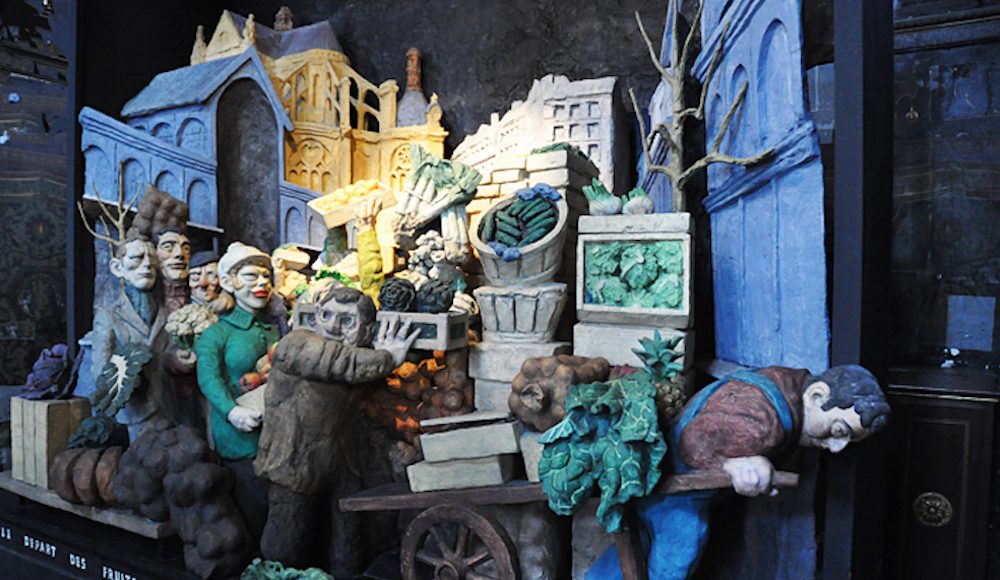(I took the photo above at the St Eustache church in Paris). I recently ran a one-question Quick Poll asking people: What are your biggest, toughest challenges today? It turns out the top challenge is how to cultivate a collaborative, cooperative mindset. Then I set up a brief crowd-sourcing initiative on a Google doc asking people to share more from their real life experiences. What follows are extracts from the conversations along with my own observations. (See the article summarizing the Quick Poll: Your toughest challenge today. I asked 112 people around the world.)
> Humans are lost in the digital conversation. We need to get back to basics.
So much talk about organizational (read: digital) transformation is about technology. In most cases I know, the focus is nearly entirely on customers. At least they are people! However, the people inside the organization, those making it possible to serve customers, are too often forgotten in the conversation.
- “Leaders must have a desire to invest in people. This is lost in the digital conversation. 1’s and 0’s do not equal human kindness. We have to get back to basics for change to happen.” Howard Cohen, Vice President Digital Social Web Knowledge at Chubb Insurance.
- “Having worked in a people industry, you are correct.” Marc Romeo, Hiring Our Heroes Fellow at GE Aviation, Military Veteran.
The underlying challenge here is to bring more human kindness into organizations, more pleasure and joy to the workplace. After all, a workplace is nothing without the people.
> Ensure people matter. Involve them.
One hurdle for organizations is to find ways to enable people to feel proud of their skills and knowledge, and to involve them in real discussions where their input matters.
- “Individuals have to consider their own connections, showcase their own background and knowledge, as a key knowledge asset for themselves and their organizations.” Catherine Shinners, Charter Member at Change Agents Worldwide LLC.
- “The most important thing here is to push for global collaboration by involving as many people as possible in projects, decision-making, and making sure they feel that what they contribute helps move the company forward. It takes a lot of personal discussions to really bring about a more collaborative mindset.” Erik Meyers, Head of Global Communications, Performance Chemicals Division, BASF.
The underlying challenge here is how to overhaul existing systems and corporate mechanisms to be truly people-oriented.
> We need to find the right balance between open and closed.
Openness is a pre-requisite for cooperation, but for many people it’s a radically new way of working.
- “My regular no 1 is finding the balance and right time between working openly and my own and my company’s more traditional habits.” Brett Williams, Community Coordinator / Change Agent at Australian Taxation Office.
- “We have just finished our first pilot of a “working out loud circle” and plan to run some more. It allows using and enhancing personal networks within and outside the company in a way that helps you reach your personal goals while contributing to the work of others.” Petra Möller, Project Manager HR Development, Team Knowledge and Competence Management bei Festo AG & Co KG.
The underlying challenge here is how to scale working out loud in large organizations.
> Reality check: Time pressure, lack of resources.
One of the most common obstacles is lack of time and resources, which is why decisions made in the too-often disconnected C-Suite can be so hard to implement in reality.
- “Actually, it’s always a why that’s the starting point. Why do you want to do something – especially when most people are working under time pressures with lack of resources. What’s the business challenge / problem? Or what’s the thing you believe can be done better?” Anne Marie Rattray, Founder at The Smart Work Company Ltd.
- “We have a lean workforce, making it difficult to find people with time to dedicate to moderate/facilitate message boards, idea boards, blogs, wikis, etc. The moderation/ facilitation part may be the toughest part to solve because we must figure out what current work practices we are replacing because we can’t add the facilitation/moderation tasks AND do everything we are doing today unless we hire more people.” Karen Downs, Intranet Program Manager at H&R Block.
The underlying challenge here is to find ways to break through the time/resource issue. Is it a question of changing focus, simplifying work, learning to work differently?
> The answers are certainly multiple, interconnected, and will require fundamentally rethinking a lot of things we take for granted today.

